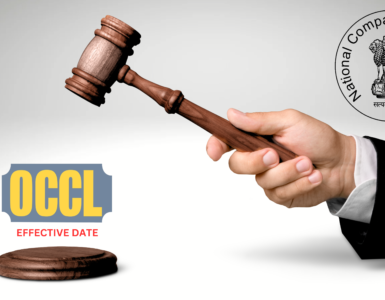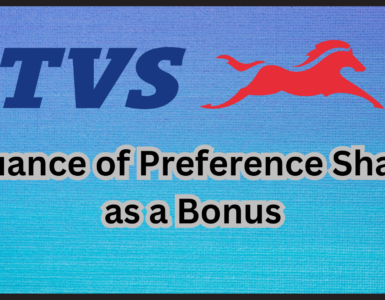Pursuant to the changes in direct tax rates, buyback of shares by the companies gained a momentum to return money to shareholders. In the last couple of years, lot of listed companies opted for the Buyback of its equity shares.
Generally, Buyback is opted by the Company when they feel intrinsic value of the company is above the trading price of its equity shares and hence, it will be accretive for the shareholders of the Company to reduce the paid-up number of equity shares. In this article, we will discuss two buybacks; one which is successfully over and other one which is proposed (re-proposed) after denial by the Securities Exchange Board of India (SEBI) in 2019.
Larsen & Toubro Limited (L&T)
On 25th July 2023, Board of Directors of India’s one of the Infrastructure to Information Technology conglomerate, Larsen & Toubro Limited (“L&T”) proposed a buyback of 3,33,33,333 equity shares of INR 2 each (representing 2.4% of the total paid-up capital) at a maximum price of up to INR 3000 per equity share via tender offer route through stock exchange mechanism. This entails cumulative outflow of INR 10,000 crore. If successful, this will be its first maiden Buyback by L&T. The current market price of L&T stands in the range of INR 2500-2600 per share.
Interestingly, in 2018, L&T attempted its first buyback which was rejected by SEBI on account of consolidated debt to paid-up capital & free reserve ratio exceeding two times. The buyback offers that time was for 6,10,16,949 (representing 4.29% of that time paid-up equity shares) equity shares at price of INR 1475 per equity share aggregating to INR 9000 crore.
The financial position of L&T has improved over the last couple of years and this time it will be well within limit of prescribed ratio for buyback under the Companies Act, 2013. However, the key question comes; whether buyback is really value accretive for shareholders of companies like L&T?
L&T is engaged in infrastructural developments. Large infrastructure projects have huge gestation period and requires good amount of working capital. Even considering the debt levels, consolidated debt for L&T has increased by INR 10,987 crore from 2018 to 2023. As on 31st March 2023, the outstanding order value for the company was circa INR 400,000 crore. With infrastructure boom in the country, it is expected that L&T’s order book to soar significantly in coming period. In such scenarios whether L&T really want to return money back to shareholders rather than re-investing in the company?
The proposed buyback will though reduce existing number of paid-up equity shares and its net worth, which may increase RoE and EPS (though one need to evaluate this vis-à-vis reduction in debt & interest if the same amount used to repay existing debt.) L&T has set up target of 15% Return on Equity by FY 26 from current ROE of circa 12%.
*: Including surcharge & cess.
**: Cost of acquisition considered to be zero.Thus, effectively L&T shall shell out Rs. 12,330 crores on buyback which their PAT for FY 2023. The consolidated net worth of L&T will get reduced to that extent.
*: TentativeOne 97 Communications Limited (Paytm)
During the previous year, the Board of Directors of Paytm at its meeting held on December 13, 2022, had approved buy-back of equity shares amounting to INR 8,50 crores at a price not exceeding INR 810 per equity share. The buy-back was offered to the equity shareholders of the Company under the open market route through the stock exchanges. The trading price of the stock at time of announcement was circa INR 540 per share.
The buyback of equity shares commenced on December 21, 2022, and was completed on February 13, 2023. Accordingly, during this period, the Company bought back 15,566,746 Equity Shares at an average price of INR 545.93 per Equity Share aggregating to INR 8,49.8 crores. Total outflow for Paytm was INR 1,056 crores including transaction cost and direct tax.
Interestingly, Paytm did its initial public offering (IPO) in 2021 worth Rs 18,300 crore at its issue at Rs 2,150 per share. The IPO was a mix of fresh issue (of INR 8300 crore) & offer for sale. Since listing, the share prices of Paytm were continuously falling and reached to the low of INR 439 per share. Even on the listing day, the share price closed at 27% lower than the issue price.
Paytm did its IPO in 2021 and immediately after completing the IPO it announced buyback of its equity shares. The price for buyback (INR 546) is almost 25% of what it fetched while IPO. Significant portion of IPO was in the form of OFS.
Conclusion
The objective of any buyback is to enhance value, in our opinion in the long term for all the shareholders. Two cases of buyback in our opinion are outside the boundary for creation of value for all shareholders.
In case of Paytm,
The key question comes whether regulators shall allow companies to do buyback in case of a company.
- Which is continuously making cash losses?
- Within year of an IPO at almost 25% of the IPO prices?
Now coming to L&T is engaged in infrastructure requiring huge capital and have substantial debt on the book. Though, no doubt, it complies with the criteria of post-buy back debt equity ratio. It is booming time and in downturn the company may go into cash losses or even for expansion and get increase market share it needs capital. Finally, such capital, if conserved will only create long term value than buying minuscule share capital at huge premium. India is at cusp of mega infrastructure boom and L&T will likely to become one of the biggest beneficiaries. For both companies, Does the buyback is the effective to create a wealth for its minority shareholders?




